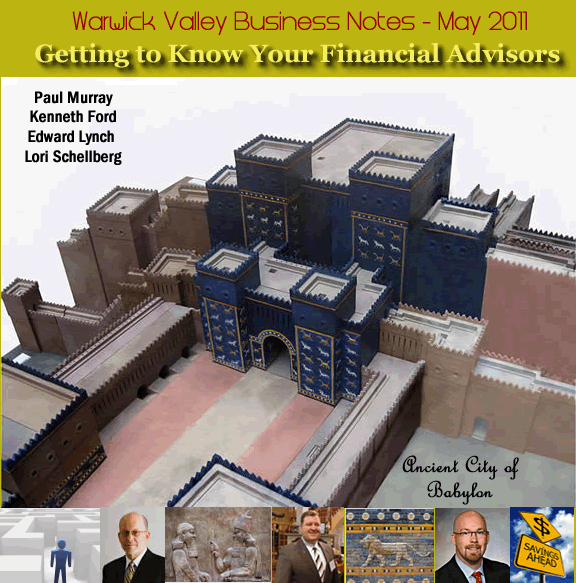FEATURING
Stories
Momento Restaurant: Providing European Elegance in a Romantic Setting
- Details
- Written by George L. Nitti George L. Nitti
- Category: Food & Wine Food & Wine

Charming, romantic, and elegant, Momento Restaurant is set in the serene backwoods of West Milford, NJ, and offers fine Italian cuisine. Owned by the affable and charming Alberto Dautaj, who has operated several other restaurant businesses around the area and has much experience in the restaurant world, Momento he says is his “baby," what he calls a dream come true.
When you visit, you’ll understand why it could fit into a dream. With just the right mix of decor, food and service, if you can't get to Tuscany, Momento is much closer and will provide a touch of European elegance in its rustic setting. Once you arrive, you won’t want to leave; you may even want to linger longer and walk the grounds, perhaps even think about planning a very special event of your own.
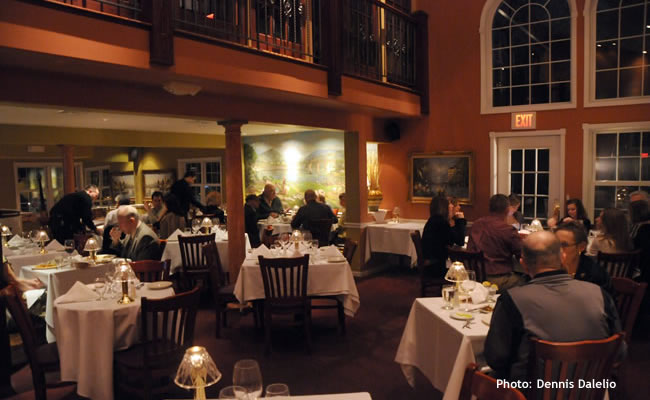
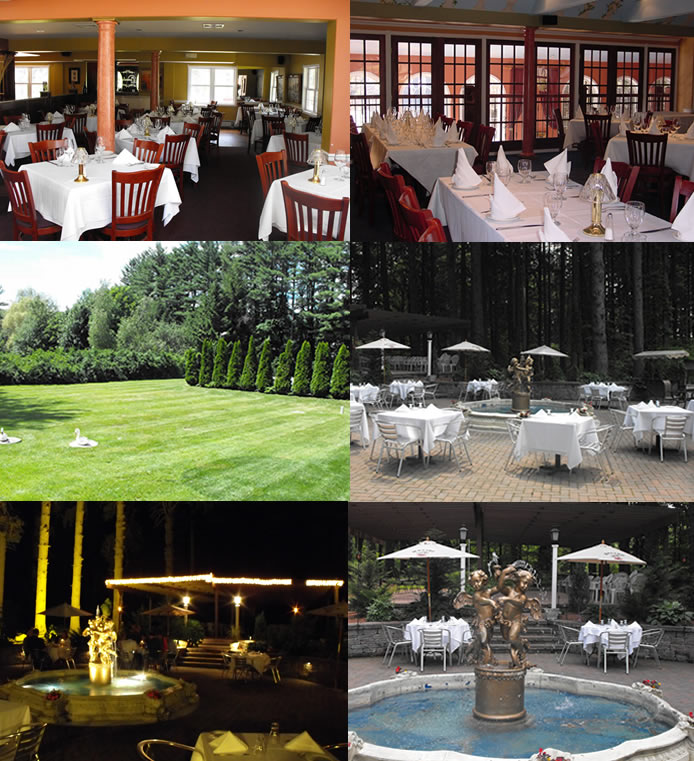
When you go, here are some of our recommends.
Soup and Appetizer - The Pasta Fagiole is excellent. The hot antipasto, which includes a sampling of baked clams, mussels, shrimp, eggplant rollatini and spiedini, is always a treat for two. The spiedini romana which is bread and mozzarella that is lightly battered with egg and parmesan cheese in a light anchovy-capers-butter lemon sauce is simply mouthwatering. As a special, Kerryl and I had crabcakes one evening and enjoyed them immensely, as they were were lightly breaded and filled with lots of crabmeat, just the way we like them.
If you are coming for the early bird special, the lamb shank is always a good choice; the lamb is cooked in its own juices and falls right off the bone. We promise you won't need to use a steak knife!
As for fish, the Grouper, Chilean Sea Bass, or Salmon or any one of the fish specials is always good.
Particularly delectable - Pasta Adriatico. A dish with ample seafood, it offers a lot of variety and flavor, so much so that “you’ll feel the presence of the Adriatic sea.”
For Chicken or Veal, Besi, the manager at Momento, strongly recommends the Albanotti, which are rolled chicken or veal stuffed with prosciutto, mozzarella and herbs.
The Steak Au Poivre and Momento are tasty shell steaks that can always be prepared any style.
For dessert, try the profiterole, tiramisu, or cheesecake, which is my favorite.
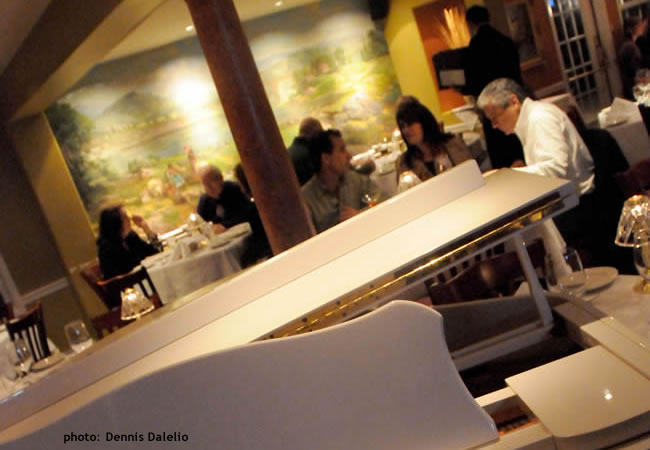 Why go to Momento, besides great food? We often go to enjoy live jazz on Thursday nights, where we sit at the bar for a drink and listen to the host of performers play anything from jazz standards to a fusion of special music. In the summer, we enjoy going outdoors where we behold the pines, listen to the murmuring water of a fountain, feeling as if we were sitting at an outdoor Piazza somewhere in Rome.
Why go to Momento, besides great food? We often go to enjoy live jazz on Thursday nights, where we sit at the bar for a drink and listen to the host of performers play anything from jazz standards to a fusion of special music. In the summer, we enjoy going outdoors where we behold the pines, listen to the murmuring water of a fountain, feeling as if we were sitting at an outdoor Piazza somewhere in Rome.
And of course we go to see our old friends – Alberto, Besi and staff – who couldn’t be any friendlier, fun, and hospitable.
Momento Restaurant is located at 374 Morsetown Rd., West Milford, NJ 07480, 973-728-9613. For more information, visit their website www.momentorestaurant.net.
The Warwick Atelier: Building a Solid Foundation for Painting and Drawing
- Details
- Written by Susan Hope Fogel Susan Hope Fogel
- Category: Education Education

Showcasing 54 works of art at the Seligman Center in Sugarloaf, The Warwick Atelier celebrated the achievements of first and second year students at their Second Annual Exhibition. As I viewed this exhibit, I was impressed by the challenges my students overcame and progress they achieved in understanding the principles of painting.
I am always pleasantly surprised by the passion and discipline they each possess to develop their craft. Viewing the framed, completed works of art in the gallery was validation for me and the students, who put in long hours of painting, some well beyond regular class time, to improve their skills.
To be successful as a teacher, its been my hope to make myself expendable to my students…to bring them to a place where they can think, feel and “intuit” their way to resolution.
I think of myself as a guide on the path of creativity. I started the Warwick Atelier in order to pass on a tradition that was passed on to me. I am grateful for the incredible teachers who helped me to build a solid foundation in the principles of painting and drawing. In the beginning of this process, the student is absorbed in learning technique; eventually, when they leave this learning environment, they tap into their own voice and style.
There is a certain level of freedom that comes from having techniques and principles of drawing at one’s fingertips. Students will be able to paint or draw any subject. This comes about by a shift in visual perception. When the student paints, their focus should be on the shapes of light, shapes of shadow, color and other concepts…. without naming the objects they are painting…when one can look at something as if they have never seen it before…then curious observation will lead them to truly see as an artist…. GOAL ACHIEVED… That is the underlying theme to the work that is done in The Warwick Atelier.
What is Polarity Therapy?
- Details
- Written by George L. Nitti George L. Nitti
- Category: Health & Spirit Health & Spirit
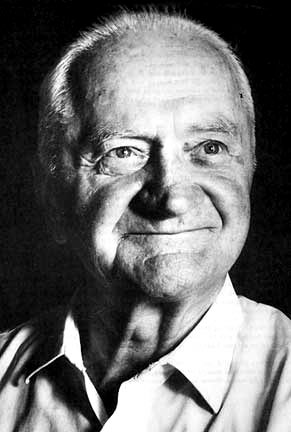 Polarity Therapy was developed by Dr. Randolph Stone (1890-1981), who was a chiropractor, osteopath, and naturopath. He sought to research and understand the fundamental healing process in human beings recognizing that we are not composed of flesh alone but also of mind, emotion and spirit. His travels and studies throughout the world finally led him to the ancient healing systems of China and India and the belief in the existence of a life-force or energy that vitalized and organized all life.
Polarity Therapy was developed by Dr. Randolph Stone (1890-1981), who was a chiropractor, osteopath, and naturopath. He sought to research and understand the fundamental healing process in human beings recognizing that we are not composed of flesh alone but also of mind, emotion and spirit. His travels and studies throughout the world finally led him to the ancient healing systems of China and India and the belief in the existence of a life-force or energy that vitalized and organized all life.
Dr. Stone recognized that a parallel could be drawn between the human body and an electromagnet, in that a magnet has a positive/negative pole with a magnetic field extending around it. The body can be viewed as a “bio-magnet,” producing its own bioelectrical currents, which flow in specific patterns throughout the body and the field around it - just like a magnet! Hence the name Polarity Therapy.
And like a magnet, the atoms of the human body too must be lined up or polarized with each other; otherwise the bio-magnetic field of the whole body will become disorganized and impede healthy functioning.
An example of this would be dropping a magnet onto a hard floor; the magnetic field would be destroyed because the atoms would shake into a random pattern, the individual atoms becoming depolarized in relation to each other. Similarly, the body reacts this way to trauma, injury, stress, and even to exposure to powerful EMF’s (electromagnetic fields) of many everyday office and household appliances.
Accordingly, Polarity Therapy offers a unique synthesis, blending the wisdom of Ayurveda, the ancient Indian "Science of Life," and Yoga philosophy, with cutting edge insights from Quantum Physics, to understand the body as energy, thus creating a system of principles of a hands-on approach to a Holistic/Integral healing.
In Polarity Therapy, great attention is paid to the chakras, which in India are considered major centers of bio-magnetic activity in the body. The “energy anatomy,” or flow of energetic patterning of a client, offers an energetic map which is palpable to a trained polarity therapist. With the skilled use of their hands, polarity therapists are able to help in the re-polarization of the body through hands-on, point-specific contact along various patterns of the body’s electromagnetic field.* The client remains clothed throughout the session including the bodywork portion received on the table.

Healing starts to take place as we clear trauma from the cellular memory of the body and balance energy, to attune our life with the Self. The techniques of Polarity Therapy Bodywork aim to free the body of debilitating patterns of physical/emotional holding which result in physical manifestations and energetic restriction. This specialized way of reading the body and then releasing it from the grip of the past moves a person into a future of freedom and a continued process for healing.
 The healing approach of Polarity Therapy is defined by the clarity of our intention to address the innate healing intelligence in the body. Practitioners work holistically through the integration of: Polarity Energy Bodywork, Craniosacral, Somatic emotional clearing, counseling, health building diets, and yoga energy exercises. All serve to bring the person as a whole into a better state of balance.*
The healing approach of Polarity Therapy is defined by the clarity of our intention to address the innate healing intelligence in the body. Practitioners work holistically through the integration of: Polarity Energy Bodywork, Craniosacral, Somatic emotional clearing, counseling, health building diets, and yoga energy exercises. All serve to bring the person as a whole into a better state of balance.*
Polarity Therapy can treat a full spectrum of conditions, from those related to physical trauma to problems associated with mental and emotional stress. Clients especially find that once the mind/body connection has been made, the physical manifestation of prolonged emotional stressors are then liberated and cleared. Polarity Therapy supports ones’ own innate healing ability as: “The truth behind your energy can provide the medicine to heal.”™
Polarity Therapists work with individuals who are seeking resources for healing and personal growth. Individuals are also given “tools” or suggested strategies to use on their own to help them maintain a more balanced way of life. Polarity Therapy encourages self responsibility for the physical and emotional health of the individual and ultimately his or her greater well-being.
At its essence, Polarity Therapy offers a unique synthesis of holistic principles into a comprehensive whole-body wellness and prevention system of integral healing.
To listen to Darleen speak about Polarity Therapy on Natural Awakenings Radio, click here
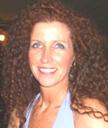 Darleen Haupt, Haupt, RPP, RPE, CST, RM, NY-LMT, has a lifetime of valuable holistic life experience. She earned her Bachelors degree in Environmental Studies, is a Registered Polarity Practitioner/Educator, CranioSacral Therapist, Reiki Master,Certified in Medical Massage and is both a Nationally Certified Massage Therapist and NY State Licensed Massage Therapist. Her passions include the study of meditation, ancient healing techniques, and how energy affects the total mind-body and spiritual matrix of one’s health. At her home studio in Greenwood Lake, NY, Darleen utilizes all of her skills to offer each client a customized session suited to their individual needs.
Darleen Haupt, Haupt, RPP, RPE, CST, RM, NY-LMT, has a lifetime of valuable holistic life experience. She earned her Bachelors degree in Environmental Studies, is a Registered Polarity Practitioner/Educator, CranioSacral Therapist, Reiki Master,Certified in Medical Massage and is both a Nationally Certified Massage Therapist and NY State Licensed Massage Therapist. Her passions include the study of meditation, ancient healing techniques, and how energy affects the total mind-body and spiritual matrix of one’s health. At her home studio in Greenwood Lake, NY, Darleen utilizes all of her skills to offer each client a customized session suited to their individual needs.
Her mission is to empower others on their own healing journey. To schedule an appointment or for further information call Darleen at 914 907-7911 or visit her web site www.DharmaEnergyHolistics.abmp.com
References: Health Building: The Conscious Art of Living Well by Randolph Stone, D.O., D.C.
The Polarity Process: Energy as a Healing Art by Franklyn Sills
Vibrational Medicine by Richard Gerber, MD
Singer/Songwriter Chip Murray's "Wide Awake" Hits Home
- Details
- Written by George L. Nitti George L. Nitti
- Category: Music Music
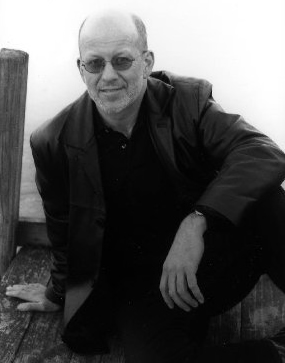 I met Chip Murray in 2006, moved and touched by his music and songwriting gifts. His first CD, Gone Wishin’, released in 2004, garnered rave reviews. At the time, I asked Chip if he could play some of those tunes for Kerryl and I on our wedding day. Over time we’ve become good friends, built on a mutual respect for each others talents and openness regarding relationships, politics and music. These subjects touch at the core of Chip’s music, providing substantive, intimate, and stirring portraits and vignettes.
I met Chip Murray in 2006, moved and touched by his music and songwriting gifts. His first CD, Gone Wishin’, released in 2004, garnered rave reviews. At the time, I asked Chip if he could play some of those tunes for Kerryl and I on our wedding day. Over time we’ve become good friends, built on a mutual respect for each others talents and openness regarding relationships, politics and music. These subjects touch at the core of Chip’s music, providing substantive, intimate, and stirring portraits and vignettes.
Today, Chip is proud to share his second CD, Wide Awake, touching on similar themes, with several rousing political songs at center stage, such as “The Ballad of John Hall,” “Wide Awake,” and “Independence Day.” Avowedly, he’s a Tea Party Patriot, proud to speak up and openly about values dear to our American heritage – Freedom to Worship, Family Values, the Constitution and Capitalism. From the liberal side, he may not be too popular. “There are things you don’t talk about at the dinner table or a cocktail party. We are at a place where we cannot afford not to. Public discourse has been silenced by political correctness.”
Almost four years after the release of his first CD, Chip laid his guitar aside. In September of 08’, as a hurricane swept through our area and in the midst of soul searching of his own, he broke his dry spell with “Wonder Why” as he claims it “fell right out of the sky.” Sounding like Eric Clapton, he sings, “I wonder why we wake up only to fall back asleep again…. I wonder why we break up only to fall back in love again.” 15 songs followed, produced and compiled in this very noteworthy CD.
It’s hard to determine my personal favorites, as many of these songs grab me and won’t let me go. “Wide Awake” has gotten the most play on my CD player. “Tip Jar” is really a lovely tune, a tribute to the songwriter and artist within to not let that spark and source of creativity die. “So let it out, don’t keep it in. Don’t let another day begin without a song in you.” “My Girl,” is a beautiful expression of the challenge of living in relationship, as we experience its highs and lows.
To celebrate the release of “Wide Awake,” Chip and his band performed at Pennings Farm on July 1st, 2011 at 7:30PM. He states, "There is no greater symbol of what it means to be American than the American Farm. And while I am pleased to know many, there are no greater representatives of the American Farmer to my mind than the Pennings Family and their wonderful staff. So, it is with great pleasure that we invite you to the birthday celebration of the greatest nation in history…and the release of the CD inspired by our American Heritage and Birthright of Liberty and Freedom."

Getting to Know Your Financial Advisors
- Details
- Written by George L. Nitti George L. Nitti
- Category: Business Business
"Annual income twenty pounds, annual expenditure nineteen nineteen and six, result happiness. Annual income twenty pounds, annual expenditure twenty pounds ought and six, result misery." Charles Dickens
What prompted me to provide a questionnaire to several financial advisors for Warwick Valley Living, in part, was to avail myself of the opportunity to get to know several of them who reside in our area. I've always had an affinity for money, not so much in a possessive, material way, but for all of the necessities it provides; for that feeling of security it gives; for the hopes that it can instill about one's future; for the well being that it can help nourish. How money makes the world go round and round, a truth that never seems to lessen with time! If we could have more, what would we do with it? If we won the lottery, how would we employ it? Perhaps even more to the point, if we had a financial advisor on our side, one whom we could entrust with our hard earned money, would our financial situation be better off?
Striking up a conversation with one financial advisor from our area, the idea for this questionnaire arose. I figured ask the people who deal with money everyday, some of the questions I have. Who is my financial advisor? What are their values? What do they read? How do they feel about their business? How have they put into practice what they preach? Perhaps then, I can make a more informed decision about whether to entrust my money with one of them.
For me, I've decided it's time to get my financial ship in order. As in the Dickens quote above, I understand how having a little more in your pocket, than being indebted, is cause for a greater degree of happiness. I would imagine most of us want a measure of real financial security, something that gives us lasting comfort, rather than the fleeting feeling of having money one moment and not having it the next.
Babylon, an ancient city, became the wealthiest because its citizens were the richest people of their time. "They appreciated the value of money. They practiced sound financial principles in acquiring money, in keeping money and making their money earn more money. They provided for themselves what we all desire...incomes for the future."
The following financial advisors provide insight and wisdom about financial well being and give you a glimpse of who they are. Here's to your financial health and to the prosperity of our community.
{niftybox background=ivory,textcolor=maroon,float=right,textalign=justify,border=gold,font=Verdana,fontsize=14px}
Question #1: Tell us a little bit about yourself.
{/niftybox}
 Paul Murray, Axa Advisors; (201) 592-2519; website: www.chipmurray.net
Paul Murray, Axa Advisors; (201) 592-2519; website: www.chipmurray.net
Paul I first joined AXA Equitable in 1994 after interviewing with several firms in our industry. I chose AXA for a number of reasons. I had been a client of theirs for a number of years as a principal in a family business which left me with a very favorable impression. Also, they have a strategy approach to doing business which felt very comfortable to me. Today AXA has some 96 million clients, 206 thousand employees and operations in over 56 countries.
 Kenneth Ford, Warwick Valley Financial Advisors, 24 Main St., Warwick, NY, 845-981-7300 website: www.warwickfa.com
Kenneth Ford, Warwick Valley Financial Advisors, 24 Main St., Warwick, NY, 845-981-7300 website: www.warwickfa.com
Ken: I started in the Financial Industry right out of college. I began my career in the training programs of some of the leading regional firms. After spending a number of years working for some of the top firms on Wall Street, my desire to offer my clients independent and objective guidance led me to join LPL Financial - the largest independent broker/dealer nationwide *. In 2003, I founded Ford Wealth Management and just recently teamed up with another LPL financial advisor to create Warwick Valley Financial Advisors. I am a 5 star member of the Paladin Registry. Admittance to this registry is limited, based on competency, integrity, and various risk factors. I graduated from Hartwick College where I was an eight-time All-American Swimmer and in 1999 was inducted into the college’s hall of fame. To be closer to our family, my wife Femi and I, as well as our two children moved from Hoboken, NJ to Warwick. * As reported in Financial Planning magazine 1996–2009 based on total revenues.
 Edward M. Lynch, Edward Jones, 77 Ronald Reagan Blvd, Warwick, NY, 845-987-7220 website: edwardjones.com/en_US/fa/index.html&CIRN=700164
Edward M. Lynch, Edward Jones, 77 Ronald Reagan Blvd, Warwick, NY, 845-987-7220 website: edwardjones.com/en_US/fa/index.html&CIRN=700164
Ed: I grew up in Rockland County, NY – in Nanuet. I received a 4-Year Army ROTC scholarship – which paid for my tuition and books when I went to Lehigh University. After that I had 4 years of Active Duty – and then I joined the Army Reserves – combined with my 4 years as a Cadet, I’ve served a total of 32 years. I’m married and have two kids who are teenagers in our Warwick schools. I earned both an engineering degree from Lehigh and an masters (MBA) from Fordham University. I worked for Con Edison for a number of years and now with Edward Jones, a full-service financial services firm with nearly 13,000 branches, since 2003.
Lori Schellberg, Myles Financial Services, 59 North Main Street Florida NY 10921 (845) 651-3070x225
Lori: I have been in the industry for almost 20 years. I am a local (Slate Hill) resident with 3 children in the Minisink Valley School district and grew up in Warwick so I can relate to the local folk. I have always wanted to work in the financial services field. When I was younger, I sat around the kitchen table with my parents and their advisor and knew then that it was what I was interested in doing. I went to LeMoyne College in Syracuse NY and graduated with a 4 year degree in a little over two years. I then started off my Financial career with First Albany Corp and what was then Salomon Smith Barney. I love helping people achieve their goals no matter how large or small their accounts may be.
{niftybox background=ivory,textcolor=maroon,float=right,textalign=justify,border=gold,font=Verdana,fontsize=14px}
Question #2: What do you see as your particular strength as a financial advisor?
{/niftybox}
 Paul: Lots of people with good intelligence, willing to work hard can do what we do. Knowledge alone is power without direction in my opinion. Knowledge combined with the right motivation is the key, and I can’t think of a better motivation in today’s world than helping people. I would consider that motivation as my greatest strength.
Paul: Lots of people with good intelligence, willing to work hard can do what we do. Knowledge alone is power without direction in my opinion. Knowledge combined with the right motivation is the key, and I can’t think of a better motivation in today’s world than helping people. I would consider that motivation as my greatest strength.
 Ken: Understanding a client’s financial position better than they understand it themselves. I have the ability to take complex planning strategies and make them digestible and put in place actionable steps to achieving client’s goals. I often can help investors from repeating common mistakes that can be easier avoided with their investment. Investors today need more than ever; timely unbiased financial advice that they can trust. Our goal at Warwick Valley Financial Advisors is to be your most trusted advisor through our professional knowledge, our integrity and our personalized service.
Ken: Understanding a client’s financial position better than they understand it themselves. I have the ability to take complex planning strategies and make them digestible and put in place actionable steps to achieving client’s goals. I often can help investors from repeating common mistakes that can be easier avoided with their investment. Investors today need more than ever; timely unbiased financial advice that they can trust. Our goal at Warwick Valley Financial Advisors is to be your most trusted advisor through our professional knowledge, our integrity and our personalized service.
 Ed: My strength is Retirement Planning. This is such an important part of our financial lives, as there is no more expensive undertaking than being financially prepared for a long retirement. People are living longer – the average male is going to live into their mid-eighties. Many people are not well prepared, nor know if they are financially fit for retirement. Many are not sufficiently saving/investing, not often enough, nor long enough – you can’t wait until fifty years old to be addressing this, because it just makes it so much harder to achieve your financial goals. As a financial advisor, I “coach” my clients with their retirement goals, by helping them set priorities and invest to achieve them. For example, faced with the choice of saving for your kids’ college education or funding your own retirement, the latter is more of a priority. Your kids will value you more if you don’t depend on them for retirement than if you gve them all of your money for college.
Ed: My strength is Retirement Planning. This is such an important part of our financial lives, as there is no more expensive undertaking than being financially prepared for a long retirement. People are living longer – the average male is going to live into their mid-eighties. Many people are not well prepared, nor know if they are financially fit for retirement. Many are not sufficiently saving/investing, not often enough, nor long enough – you can’t wait until fifty years old to be addressing this, because it just makes it so much harder to achieve your financial goals. As a financial advisor, I “coach” my clients with their retirement goals, by helping them set priorities and invest to achieve them. For example, faced with the choice of saving for your kids’ college education or funding your own retirement, the latter is more of a priority. Your kids will value you more if you don’t depend on them for retirement than if you gve them all of your money for college.
Lori: I feel the fact that our company can offer a full service "one stop shop" gives me an advantage over other advisors. We can help clients with the full picture and not necessarily just their financial needs. We have a network of accountants and attorneys and real estate brokers that we work with. So if there is something that we cannot handle, for instance updating a will or trust or listing a home for sale as you need the funds to live, we can refer to the network to help the client rather than send them out "blind." My individual strength is that I am female and believe I tend to be more patient and compassionate than other male advisors.
{niftybox background=ivory,textcolor=maroon,float=right,textalign=justify,border=gold,font=Verdana,fontsize=14px}
Question #3: What book and/or person have you been most influenced by in terms of how it has helped shape your financial philosophy?
{/niftybox}
 Paul: I cannot point to any one book as having influenced or shaped my financial philosophy. I will say that in addition to the wide variety of financial and investment planning periodicals and publications that I try to keep up with, I am required as a CFP and registered representative of FINRA, to complete a number of continuing education courses to maintain my credentialing.
Paul: I cannot point to any one book as having influenced or shaped my financial philosophy. I will say that in addition to the wide variety of financial and investment planning periodicals and publications that I try to keep up with, I am required as a CFP and registered representative of FINRA, to complete a number of continuing education courses to maintain my credentialing.
 Ken: I have been influenced by Dow Theory Books. Charles Dow was an American journalist who co-founded Dow Jones & Company and The Wall Street Journal with Edward Jones in the late 1800’s. Dow was first known for being one of the first journalists to publish financial data on public companies stocks. He also created the Dow Jones Industrial & Transportation averages in order to follow the price movements and patterns of the indexes which later became known as Dow Theory. Dow Theory has been around for almost 100 years, yet even in today's volatile and technology-driven markets, the basic components of Dow Theory still remain valid. Dow’s theory addresses not only technical analysis and price action, but also market philosophy. Many of the ideas and comments put forth by Dow and Hamilton became axioms of Wall Street. While there are those who may think that it is different this time, a read through The Dow Theory will attest that the stock market behaves the same today as it did almost 100 years ago. I recently went back and read many of Dow’s columns… and I was reminded that we will always have booms and busts – as well as fear and greed – in the markets. As far as we have come, we have to realize human nature doesn't change.
Ken: I have been influenced by Dow Theory Books. Charles Dow was an American journalist who co-founded Dow Jones & Company and The Wall Street Journal with Edward Jones in the late 1800’s. Dow was first known for being one of the first journalists to publish financial data on public companies stocks. He also created the Dow Jones Industrial & Transportation averages in order to follow the price movements and patterns of the indexes which later became known as Dow Theory. Dow Theory has been around for almost 100 years, yet even in today's volatile and technology-driven markets, the basic components of Dow Theory still remain valid. Dow’s theory addresses not only technical analysis and price action, but also market philosophy. Many of the ideas and comments put forth by Dow and Hamilton became axioms of Wall Street. While there are those who may think that it is different this time, a read through The Dow Theory will attest that the stock market behaves the same today as it did almost 100 years ago. I recently went back and read many of Dow’s columns… and I was reminded that we will always have booms and busts – as well as fear and greed – in the markets. As far as we have come, we have to realize human nature doesn't change.
 Ed: One of my role models is my Dad. By his example, he taught me the importance of integrity and a strong work ethic, something I bring to my profession to this day. My father was intent on succeeding and helping his family (he and my mom had four kids to raise) to have a better life. While he didn’t have the means for much financial investing, his greatest investment was toward his family. As a result, his children are all successful professionals with families, and working to make a better life for their kids as well.One of my favorite books is called Good to Great by Jim Collins. This book’s theme encourages leaders in business to realize, as good as your firm may be, there is always room for improvement. I try to live my life this way. I’m an “eternal student,” always reading to improve my knowledge in my profession and assessing my business, to ensure my services to my clients are the best that they can be.
Ed: One of my role models is my Dad. By his example, he taught me the importance of integrity and a strong work ethic, something I bring to my profession to this day. My father was intent on succeeding and helping his family (he and my mom had four kids to raise) to have a better life. While he didn’t have the means for much financial investing, his greatest investment was toward his family. As a result, his children are all successful professionals with families, and working to make a better life for their kids as well.One of my favorite books is called Good to Great by Jim Collins. This book’s theme encourages leaders in business to realize, as good as your firm may be, there is always room for improvement. I try to live my life this way. I’m an “eternal student,” always reading to improve my knowledge in my profession and assessing my business, to ensure my services to my clients are the best that they can be.
Lori: There has not been one. I attend several financial and insurance conferences throughout the year which keeps me up to date and gives me ideas to use and influences my decisions.
{niftybox background=ivory,textcolor=maroon,float=right,textalign=justify,border=gold,font=Verdana,fontsize=14px}
Question #4: What tips or advice could you give us for 2011?
{/niftybox}
 Paul: 1.) Plan. In order to reach your financial goals, you have to know first where you’re going. For example, if you’re investing for retirement, you need to determine when you want to retire, how much you will need to live on in retirement, how much time your investments have to grow, and how much you can afford to save each year. Once you’ve answered these questions, you or your financial professional can develop the investment strategy that will help take you where you want to go. 2.) Prepare. Make sure that all your emergency needs are covered—including adequate life insurance and saving enough in a rainy day fund to tide you over during an unexpected run of bad luck. Once your emergency needs are covered, you can begin putting your savings to work in a long-term investment strategy. 3.) Diversify. Even if you’re an aggressive investor, it’s never a good idea to put all your eggs in one basket. Those who most successfully weather the market’s ups and downs are those who have a variety of investments—some fixed income securities along with a diversified stock portfolio that includes small and large cap, growth and value sectors.
Paul: 1.) Plan. In order to reach your financial goals, you have to know first where you’re going. For example, if you’re investing for retirement, you need to determine when you want to retire, how much you will need to live on in retirement, how much time your investments have to grow, and how much you can afford to save each year. Once you’ve answered these questions, you or your financial professional can develop the investment strategy that will help take you where you want to go. 2.) Prepare. Make sure that all your emergency needs are covered—including adequate life insurance and saving enough in a rainy day fund to tide you over during an unexpected run of bad luck. Once your emergency needs are covered, you can begin putting your savings to work in a long-term investment strategy. 3.) Diversify. Even if you’re an aggressive investor, it’s never a good idea to put all your eggs in one basket. Those who most successfully weather the market’s ups and downs are those who have a variety of investments—some fixed income securities along with a diversified stock portfolio that includes small and large cap, growth and value sectors.
 Ken: 1.) Have a written financial and investment plan in place 2.) Be clear on how you are compensating your financial professional. Does your advisor work on a fee-basis, commission basis, or hourly fee? I believe it is extremely important to understand the fees that you are paying need to be transparent so that all conflicts of interest can be removed from the client advisor relationship. This will help you determine if you are working will a financial professional that is helping you manage your investments or are you working with a salesman who is just selling you financial products 3.) Develop a Risk Management Plan. Have a sell discipline for getting out of investments that are not working. What did you learn from the market crash of 2008 or the one in 2001-2002? What protection systems do you have in place to protect your investment portfolios from major market drawdowns? Realize that a 50% decline in an investment portfolio will require a 100% future gain just to get back to even. We believe there needs to be great focus on risk verses return.
Ken: 1.) Have a written financial and investment plan in place 2.) Be clear on how you are compensating your financial professional. Does your advisor work on a fee-basis, commission basis, or hourly fee? I believe it is extremely important to understand the fees that you are paying need to be transparent so that all conflicts of interest can be removed from the client advisor relationship. This will help you determine if you are working will a financial professional that is helping you manage your investments or are you working with a salesman who is just selling you financial products 3.) Develop a Risk Management Plan. Have a sell discipline for getting out of investments that are not working. What did you learn from the market crash of 2008 or the one in 2001-2002? What protection systems do you have in place to protect your investment portfolios from major market drawdowns? Realize that a 50% decline in an investment portfolio will require a 100% future gain just to get back to even. We believe there needs to be great focus on risk verses return.
 Ed: I believe in principled investing. Investing is not about trying to become an overnight success, by taking significant risks. That’s ‘trading’ not ‘investing’. Principled investing is a long term venture, with 5 key tenets: 1.) Have a long-term time horizon with investing - it’s not a one year proposition – it’s about being prudent with your assets and investing for a minimum of five years or more. 2.) Be well diversified (“don’t put all your eggs in one basket”) 3.) Choose good quality – stocks can fall out of favor. 4.) Save - Put what you can away, often and on a regular basis (e.g. every paycheck). Pay yourself first. 5.) Leave it to a professional and firm, with whom you feel comfortable and whom you trust -- to give you advice. What’s most important is their track record, the company they represent and whether or not they give you sufficient time to help you understand your investments, e.g. meet with you regularly.
Ed: I believe in principled investing. Investing is not about trying to become an overnight success, by taking significant risks. That’s ‘trading’ not ‘investing’. Principled investing is a long term venture, with 5 key tenets: 1.) Have a long-term time horizon with investing - it’s not a one year proposition – it’s about being prudent with your assets and investing for a minimum of five years or more. 2.) Be well diversified (“don’t put all your eggs in one basket”) 3.) Choose good quality – stocks can fall out of favor. 4.) Save - Put what you can away, often and on a regular basis (e.g. every paycheck). Pay yourself first. 5.) Leave it to a professional and firm, with whom you feel comfortable and whom you trust -- to give you advice. What’s most important is their track record, the company they represent and whether or not they give you sufficient time to help you understand your investments, e.g. meet with you regularly.
Lori: 1.) Get started now planning for tomorrow. Taxes should be almost filed and the financial documents a planner needs to review should be at your fingertips. 2.) work with a planner for professional advice and action 3.) diversification is key
From Warwick To Syria: Notes from Sam Kimball
- Details
- Written by Sam Kimball Sam Kimball
- Category: Travel Travel
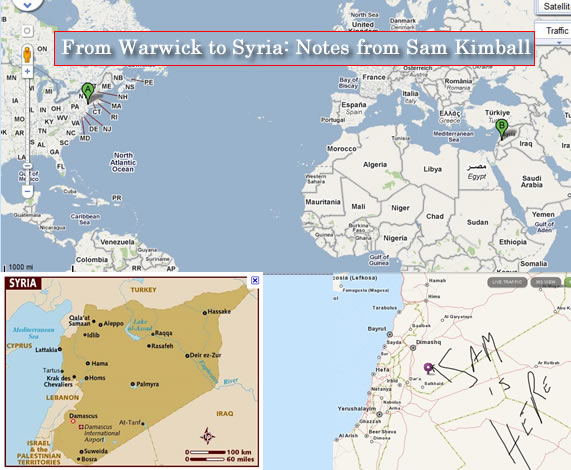
"We're Not Sleeping"
I trotted down the old stone steps, the vegetable carts piled high with bright red tomatoes and the shoe repair shops to my back, and the big ugly highway splitting this part of the Old City in two, and the pink setting sun, ahead. "Ughhh, you have no idea what you're doing...." I grumbled, looking on with frustration at the procession of cars, vans, and taxis roaring up and down the highway, Syrian flags and huge posters with the stern and (dopey-looking, frankly) face of the president, and handfuls of young cheering Syrian men, hanging out the windows. They leaned on the horns, honking with the fury one might hear after a win in the World Cup. It went on like that until late in the chilly night, echoing around the paint-flaked walls.
I winced at the mad ignorance of the shebēb (“young guys”) waving Syrian flags, as if I was being cut with a bit of glass, who come out to say… what? That, “Goddamn, we’re so proud of our country for its stability and security (albeit muffling & repressive). And goodness, we’re so taken by that pride for our waTn (“motherland”) that we just had to come out into the gloriously dirty streets of our capital to share it. It’s just a coincidence that our outpouring of love comes at the moment rebellion is appearing in the country.” Is that the message? Or, is it, as my housemate said to me one night when I came home from work, weary from the horns of regime-supporting shebēb blaring on the highway beside me, that they’re just excited at the disturbances in the daily order of things and are coming out with the flags and placards as they might in a soccer match between Manchester United and Barcelona?
The question is worth asking: is this support genuine, or fabricated? And what does genuine support really mean, in this case? The question’s a fly buzzing in my skull for the rest of the five-minute walk under the highway and through the tattered Ottoman-era buildings all piled on top of one another, to my house.
As I watch intermittent reports on Al Jazeera on TV the next morning, switching between righteousness-ripe pro-reform protests in cities like Homs and Hama and Dar’a, and video clips of big crowds of flag-waving “We Love Asad” demonstrators, the question comes up again.
I think back to the party we had in our house last week, where I stood in the back nook of our florescent-lit kitchen, surrounded by a motley assortment of European college kids, where I had my first meaningful political conversion in Syria about Syrian politics. My friend, Firas, brought up the point that a lot of the seeming support for the ruling regime here comes from people’s assumption that any kind of disturbance in the political order threatens the thing they’ve been “trained”to value most: stability. Or, at least that’s what it’s called.
What it means is a no-questions-asked one party government, supported by a deep network of secret police with nearly unlimited power due to special “State of Emergency” laws that have been in effect since 1963, which, I believe, is when the Baath party assumed power in Syria. Yet, because of the super-nationalistic rhetoric spewed in schools, something I can confirm from my days as a university student here, as well as all other major institutions, and no discourse in the public sphere to counter it, people begin to fear and, even worse, resent those who dare ask for greater freedom and opportunity in their country. That was me and Firas’ combined analysis of the state of regime support. Where we differ, though, is when Firas says, “But Bashar is not a bad guy. Actually, I kind of like him.” Sure, I don’t think he’s got evil coursing through his veins by any measure, but he’s the face of the scummy cabal that runs this place, and it’s his responsibility to avoid the intimidation or killing of protesters if he’s not crazy about shooting at his own people. So I spare him no critique.
Something that entered the margins of the conversation, rolling off the tongue of a pretty Tunisian-German girl in front of me, who lives with a Christian Syrian family in the Old City, is the enduring political and social conservativism of the Syrian Christians. She talked about how her family basically interviews her about each person she’s going to bring to the house to find out whether they’re Christian or not. I believe she also mentioned that they were very anxious about any change in the regime that could occur in Syria, fearing it might usher in a government that oppresses them, the minority. I think this is a fear that’s been cultivated since the days of the French protectorate in Syria (1919ish-1946), the French having done a swell job of dividing-and-ruling along religious lines, which is still the cause of violence in Lebanon. It may have roots further back into Ottoman times, but I don’t know much about that. Just an informed guess.
But this question of genuine support is partly answered by a little anecdote another friend shines on me when I step in the door one day. He says that, regarding the recent pro-regime demonstrations, a woman in his class at the university here in Damascus has a Syrian boyfriend. That boyfriend of hers was recently summoned to university on a Friday (normally the first day of the weekend around these parts), being told that there was an extremely important exam that day that he had to take or he would fail his course. Upon arriving at the university, he found it closed, with the doors locked. Yet, he and a number of others were collected (by who, it is not clear) and tossed into a bus that took them to a nearby pro-regime demonstration. They were sternly commanded to go out and participate in the Syrian flag fest. If that anecdote is at all typical of the current situation, we see that the apparent love of esh sha3b es sūri (“the Syrian people”) for its government is just a little inflated.
And the process of political awakening that is going on among former regime supporters, or at least those who accepted it, is an interesting one. Like my friend Fehemi, for example, whose face began to crumple with disappointment, and hints of anger crossed his brow, during our language exchange the other night. I always took him for a socially conservative guy, and this attitude popped with strength during one language exchange a couple weeks back. With the first wave of violent repression of the protests in Dar’a, he had told me that he just wished the protesters would calm down, and that he was worried that because of the clan system widespread down in Dar’a, clans would come out and take revenge on those who killed their kinsmen.
His disappointment with the ruling regime only came as a disappointment with the regime’s stupidity for violently repressing the protests, not because it was unjust and despicable to do so, but because it might spark further protests in other parts of Syria. Now, during our conversation in English, he let me know that his support built from fear was disappearing. He said “I feel like I can’t trust the President any more. I used to like him.” I pressed him a little on that last comment, and he said “I only ‘liked’ him because I knew there could be worse people in his place, like his Father Hafiz al Asad. But now, because of his lies, like saying he would remove the Emergency Laws, and because he kills his own people, I am disappointed.” I asked him if he felt angry. “Yes, I am angry. They made me believe something, but now I see that they, how do you say?” “Tricked?” I said. “Yes, they tricked me.”
About my Trip to Syria
I came to Damascus, Syria first from July to December 2010 in order to study Modern Standard Arabic at the University of Damascus. After two months of study there, I moved on to private lessons in Syrian Colloquial Arabic, the spoken language if the region, which I focused on for the rest of my time in Syria. During those five months I traveled to various places within Syria, as well as Lebanon, Turkey, and Iraqi Kurdistan.
 I returned in early March of this year to take a short-term job offer I had agreed to during my last stint in Syria. I began working part time at a language institute in Duma, just outside of Damascus proper. I worked alongside Arab teachers as a pronunciation and idiom teacher, focusing on developing a fluency in spoken English with my diverse body of students, many of whom were strong in writing and grammar, but lacked experience in conversation.
I returned in early March of this year to take a short-term job offer I had agreed to during my last stint in Syria. I began working part time at a language institute in Duma, just outside of Damascus proper. I worked alongside Arab teachers as a pronunciation and idiom teacher, focusing on developing a fluency in spoken English with my diverse body of students, many of whom were strong in writing and grammar, but lacked experience in conversation.
However, because of the protests against the Syrian autocracy that have multiplied in Syria in recent weeks, with Duma witnessing some of the most violent repression of protests, my lessons have been put on hold until further notice. I will be meeting with the Institute's administrator later today, though, to discuss the possibility of resuming lessons before I leave Syria, on May 3rd. At the moment, I am preparing to take a part time volunteer English teacher position with the Danish Refuge Council, working with Somalian refugees in Damascus. I will also begin private English lessons with a local client in a few days. We'll see what the next few weeks bring!
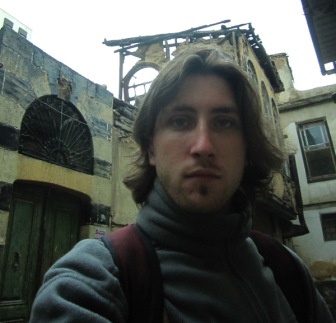 Sam Kimball is a native of Warwick, NY, a high school graduate of The Darrow School, and a recent Summa Cum Laude graduate of the City College of New York (where he attended on full academic scholarship) with majors in anthropology and creative writing, and minors in French and Arabic and where various of his articles were published in student and political newspapers. After his current term in Damascus, Sam will be doing a stay in Tunisia as a free lance journalist writing about the socio-political conditions there.
Sam Kimball is a native of Warwick, NY, a high school graduate of The Darrow School, and a recent Summa Cum Laude graduate of the City College of New York (where he attended on full academic scholarship) with majors in anthropology and creative writing, and minors in French and Arabic and where various of his articles were published in student and political newspapers. After his current term in Damascus, Sam will be doing a stay in Tunisia as a free lance journalist writing about the socio-political conditions there.
To follow Sam's blog, go to Notes from Sam Kimball.

